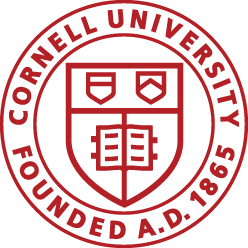Penncrest v. Cagle
The Cornell First Amendment Clinic filed an amicus brief with the Reporters Committee for Freedom of the Press and the Pennsylvania NewsMedia Association on February 15, 2024, in support of the petitioner seeking access to social media records. Petitioner, a local community member, sought access to two school board members’ Facebook posts and comments related to homosexuality and the Penncrest School District. He made this request after two board members shared a photo of a library Pride Month display on their private Facebook accounts, with one commenting that the display was “totally evil” and that kids “aren’t at school to be brainwashed into thinking homosexuality is okay.” The school district did not provide any responsive Facebook posts or comments and claimed that these were not records of the school district.
Petitioner appealed to Pennsylvania’s Office of Open Records, which sided with Cagle and ordered the school district to disclose all responsive records. The district then appealed to the Crawford County Court of Common Pleas. In denying the district’s petition, the county court used a two-part framework established under the state’s public records law to determine that the board members’ social media posts at issue are indeed subject to disclosure. The district appealed to the Commonwealth Court, which vacated the lower court’s decision and remanded for further fact finding. The Commonwealth Court instructed the lower court to conduct a three-part test for determining whether a social media post is subject to access under the Right-to-Know Law. Petitioner sought permission to appeal to the Pennsylvania Supreme Court, which the court granted.
We argued in the amicus brief that the Pennsylvania Supreme Court should reverse the decision of the Commonwealth Court and require it to promptly issue its decision without an unnecessary remand to the lower court for more fact finding. The Commonwealth Court’s order remanding the case for further review by the County Court is antithetical to the Right-to-Know Law’s plain text and remedial purpose, and the press and public access to social media activity of government officials is necessary for government accountability.
Update: Last updated March 14, 2024
Information on this page is provided for archival purposes. All newly created PDFs on this website are accessible. For an accommodation for PDFs on this page, please contact law-web-ada@cornell.edu.
